03.12.2018 Success story
Agriculture and forestry Plants Biotechnology/Systems biology
Plant genomes at a glance
A database of the RWTH Aachen simplifies the analysis of new molecular genetic information from plant research.
03.12.2018 Success story
Agriculture and forestry Plants Biotechnology/Systems biology
A database of the RWTH Aachen simplifies the analysis of new molecular genetic information from plant research.
07.12.2018 News
unspecific unspecific Chemistry
Many types of soft PVC are harmful to one's health. Thus, a consortium of the Hamburg and Bielefeld universities as well as BASF SE is looking for biobased alternatives.
06.12.2018 News
unspecific unspecific unspecific
The European Commission calls for a pan-European long-term strategy for a prosperous and climate neutral economy and names the bioeconomy as key to achieving these goals.
11.12.2018 News
Food Animals Bioökonomie mitgestalten
According to Cologne-based researchers, praising insect food as a luxury object rather than advertising it as environmentally-sound motivates more people to actually eat it.

17.12.2018 Product
Consumables Microorganisms
Decorating finger and toe nails is not a recent trend. The oldest proof for decorated nails is about 5000 years old and comes from China.
12.12.2018 News
Chemistry unspecific Biotechnology/Systems biology
Materials researchers from Karlsruhe are using enzymes as a biobased, energy-saving and sustainable alternative to conventional catalysts.
17.12.2018 News
Food Plants Agriculture sciences
Ecologists from Germany and Switzerland report that maize and wheat use the metabolite benzoxazinoid differently depending on which pest attacks them.
21.12.2018 News
Food Plants Agriculture sciences
Nuts are traditional winter and Christmas treats. However, they are not only tasty and nutritious, they also have a huge potential as source material for the bioeconomy.
18.12.2018 News
Consumables Plants Chemistry
Are bioplastics really a "green" alternative to petroleum-based plastics? According to researchers in Bonn, bioplastics are only sustainable if crop residues are used for its production.
19.12.2018 News
Agriculture and forestry Plants Agriculture sciences
Jasmonic acid is widely known as a defence hormone of plants. Researchers from Würzburg have now identified another function: it also causes the closure of stomata.
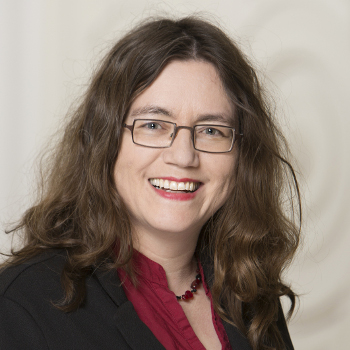
Researcher Profile
Chemistry Plants Biotechnology/Systems biology
Andrea Kruse wants to promote the material use of biomass. The chemist from Hohenheim hopes to establish a biorefinery on the farm in order to produce basic chemicals from plant feedstocks.
08.01.2019 News
Pharmaceutical industry Plants Biotechnology/Systems biology
Zoologists in Kiel have discovered highly adhesive cellulose nanofibres in the slimy protective layer of plant seeds, which may be very useful for biomedical applications.
07.01.2019 News
unspecific Microorganisms Biotechnology/Systems biology
Due to its magnetic properties, the microbial species Magnetospirillum has enormous potential for biotechnological applications and was voted Microbe of the Year 2019.
10.01.2019 News
Pharmaceutical industry unspecific Biotechnology/Systems biology
The European project PANBioRA is investigating and developing tools and methods in order to assess the risks of new biobased medical products in a standardised way.
15.01.2019 News
Food unspecific Bioökonomie mitgestalten
Fraunhofer physicists have developed a pocket-sized food scanner that uses infrared light and intelligent algorithms to determine the shelf life of food.
15.01.2019 News
Machine and plant engineering Plants Materials sciences
Materials scientists at TU Dresden have developed wood fibre-based oil binders that can clean water in the event of an oil spill.
15.01.2019 Studies and statistics
Chemistry Microorganisms unspecific
A new study by the nova-Institut investigates the sustainability of biobased raw materials for the chemical industry, both quantitatively and qualitatively.
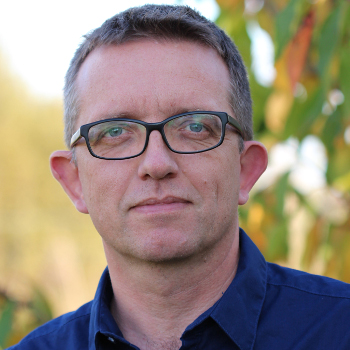
15.02.2019 Interview
unspecific Plants Biodiversity
The Berlin biologist Michael Ohl wants to record the diversity of animal species on earth with the help of innovative technologies - at the new Center for Integrative Biodiversity Discovery.
18.01.2019 News
Chemistry unspecific Chemistry
Cosmetics are a growing market but mostly based on petrochemicals. During a trade show in Paris Covestro is now presenting a new sustainable hair gel and sun protect lotion.
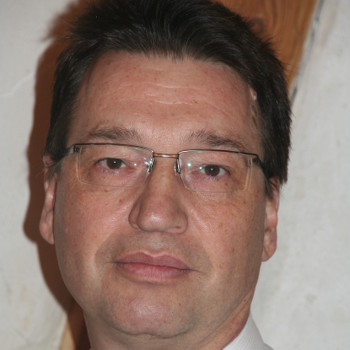
22.01.2019 Interview
Chemistry Fungi Biotechnology/Systems biology
Thomas Helle, Managing Director of Tübingen-based Novis GmbH, is developing a biogas plant using mushroom compost as part of the EU project "Smartmushroom".
01.02.2019 News
Food Plants Agriculture sciences
After a year of growing vegetables in Antarctica, Paul Zabel has returned to Germany. The results are mostly positive - in total, more than 270 kilograms of vegetables were harvested.
29.01.2019 News
Agriculture and forestry Plants Forestry
According to researchers from Heidelberg, so-called bifacial stem cells alternate between producing wood and bast cells.
28.01.2019 News
unspecific unspecific Environmental technology
The influence of climate change on groundwater is insidious. The slow reaction time could prove to be an ecological time bomb, as an international team of researchers discovered.
05.02.2019 News
Agriculture and forestry Plants Agriculture sciences
A recent study by the Thünen Institute shows: Organic agriculture scores significantly better than conventional agriculture in terms of resource conservation, soil fertility and biodiversity.
01.02.2019 News
Chemistry Microorganisms Biotechnology/Systems biology
Partners from research and industry are developing environmentally friendly lubricants based on biopolymers.

30.01.2019 Product
Consumables Microorganisms
At the beginning of the 20th century, the "first automatic detergent" went on sale. It promised clean laundry after only 30 minutes at 95°C. Before that, the laundry had to be soaked, laboriously kneaded, rubbed, rinsed and wrung.
06.02.2019 News
Chemistry Animals Materials sciences
Using modern X-ray technology, researchers have determined the adhesive structure of spider legs. The parallel fiber structure could serve as a model for new materials.
07.02.2019 News
Agriculture and forestry Animals Agriculture sciences
The most important bee species are still partially present in Europe. The EU project SmartBees ends with this good news and leaves beekeepers with tools for bee protection.
08.02.2019 News
Chemistry Microorganisms Agriculture sciences
In cyanobacteria, researchers at the University of Tübingen have discovered a molecule that is harmless to humans and that has the potential to replace the controversial glyphosate.
12.02.2019 News
Food Microorganisms Biotechnology/Systems biology
Jennewein, a biotech company specializing in human milk sugar, is researching milk products in cooperation with the Chinese market leader for dairy goods.
13.02.2019 Success story
Food Microorganisms Biotechnology/Systems biology
Enzymes are designed to modernize processes. A German team of researchers has now succeeded in doing the same in the production of sausage skins.
13.02.2019 News
Food Plants Food technology
Students of the University of Hohenheim have won a European competition against food waste with their alternative breakfast cereals called "Banaboom".
20.02.2019 News
unspecific unspecific Bioökonomie mitgestalten
With its solid wood glasses, the start-up freisicht has won the Bavarian start-up competition PlanB. For the third time, the event awarded business ideas for the bio-based economy.
21.02.2019 News
Agriculture and forestry Microorganisms Agriculture sciences
A new research consortium plans to investigate the natural defences of wheat in order to protect the plant against diseases and pests.
22.02.2019 News
unspecific Microorganisms Biodiversity
A rare bacterial species competes with methane-forming archaea and thus slows down global warming, a study by researchers from Braunschweig and Vienna shows.
26.02.2019 News
Energy Waste Energy technologies
The energy stores of tomorrow could be made from eggshells: An international team of researchers is showing for the first time how powdered shell waste can act as electrodes.
22.02.2019 News
Agriculture and forestry Microorganisms Agriculture sciences
A new research consortium plans to investigate the natural defences of wheat in order to protect the plant against diseases and pests.
27.02.2019 News
Chemistry unspecific Chemistry
Evonik has increased its venture capital fund by €150 million. This time, the specialty chemicals group is targeting start-ups with market-ready innovations - not excluding later takeovers.
28.02.2019 News
Chemistry Waste Environmental technology
Software developed by Henkel for the recyclability of packaging has passed the critical practical test by Fraunhofer researchers.
26.08.2019 News
unspecific Animals Biodiversity
An inventory of life in inland waters reveals a population loss that is twice as high as on land and in the sea.
14.08.2019 Studies and statistics
Consumables Plants Biodiversity
According to the "Below The Canopy" analysis conducted by the World Wide Fund For Nature (WWF), the 455 populations studied shrank by an average of 53% between 1970 and 2015.
21.08.2019 News
Agriculture and forestry Plants Agriculture sciences
One in two consumers is willing to buy products from vertical agriculture, shows a study by the University of Göttingen.
20.08.2019 News
unspecific Plants Materials sciences
In Baden-Württemberg, a research centre is to be established that will develop processes for the sustainable and inexpensive production of high-tech fibres from hardwood.
22.08.2019 News
Agriculture and forestry Plants Agriculture sciences
Environmental and agricultural researchers have analyzed the EU Commission's reform proposals for the Common Agricultural Policy. They have identified significant deficits and presented alternatives.
03.09.2019 Success story
Chemistry Microorganisms Biotechnology/Systems biology
Simply recycling plastic? European researchers believe they can do better. By breaking it down and making its building blocks exploitable for bacteria to create valuable resources, a research consortium plans to upcycle plastics.
26.08.2019 In-Depth Report
unspecific unspecific Biodiversity
In Germany, almost 800 research institutions in the natural sciences and humanities deal with the bioeconomy. Every two years, biookonomie.de contacts these research institutes and asks them about their priorities regarding R&D, their raw materials, industrial applications, financing and number of employees. In addition to the data collected, this year six bioeconomy experts were interviewed about their assessments of the local research landscape.
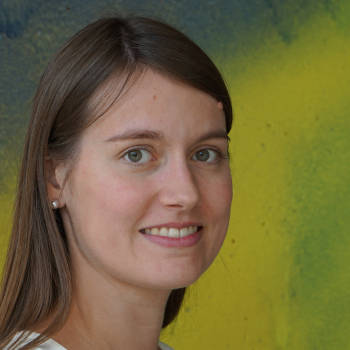
Researcher Profile
Chemistry Microorganisms Biotechnology/Systems biology
Systems biologist Nadja Alina Henke uses bacteria as cell factories to produce the red pigment astaxanthin. Now, the 28-year-old hopes to bring the process to market with her start-up company Bicomer.
28.08.2019 News
Chemistry Plants Agriculture sciences
Chemistry giant BASF and Californian molecular diagnostics expert Ontera are cooperating to produce mobile devices that can detect and name infections of diseases at an early stage.
02.09.2019 News
Agriculture and forestry Plants Materials sciences
Materials researchers at the University of Kiel have measured how strongly pollen adheres to certain flower organs.
10.09.2019 News
unspecific Animals Biodiversity
Bee researchers from Würzburg show that there are great differences between the microbial communities of social bee colonies and the more species-rich solitary bees.
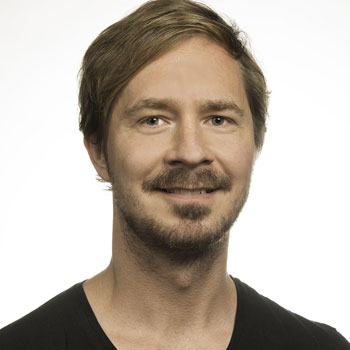
02.09.2019 Interview
Agriculture and forestry Microorganisms Agriculture sciences
Plant researcher Tonni Andersen is the 2019 Kovalevskaja Award winner. He seeks to understand how roots exchange information with soil microbes and is setting up a new research group at the Max Planck Institute in Cologne.
04.09.2019 News
Chemistry Plants Agriculture sciences
At Clariant's Straubing biorefinery, 30 metric tons of Miscanthus grass were successfully processed into sugars and ethanol.
06.09.2019 News
unspecific Animals Biodiversity
More money from the federal government, protection of habitats and a foreseeable end to the pesticide glyphosate are intended to counter the decline of insects.
13.09.2019 News
Agriculture and forestry Plants Agriculture sciences
In the right places, jojoba plantations can influence the microclimate and increase precipitation, reveals a simulation by researchers at the University of Hohenheim.
17.09.2019 News
Chemistry Waste Bioökonomie mitgestalten
A research team from North Rhine-Westphalia has developed a process to produce building blocks for important plastics from carbon dioxide.
16.09.2019 News
Agriculture and forestry Plants Agriculture sciences
A research project coordinated by the University of Hohenheim has developed a system that detects fungal infections in the field at an early stage and greatly reduces the use of fungicides.
26.09.2019 News
Chemistry Waste Chemistry
The specialty chemicals company Clariant has won a second licensee for its biorefinery technology in the Polish petroleum group PKN Orlen.
25.09.2019 News
unspecific unspecific Biotechnology/Systems biology
Molecular cinema: German and Canadian structural biologists have observed an enzyme at work and produced a time-lapse film.
01.10.2019 News
unspecific Animals Biotechnology/Systems biology
It is an amino acid that makes the silk proteins in the spider thread tensile, researchers from the University of Würzburg have discovered.
30.09.2019 News
Chemistry Microorganisms Biotechnology/Systems biology
The Dutch biotechnology company Isobionics specializes in natural fragrances and flavors and is now expanding BASF's portfolio.